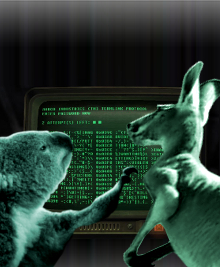iVote fail leaves polls questioned
 The NSW Electoral Commission is involved in court action over the results of recent elections.
The NSW Electoral Commission is involved in court action over the results of recent elections.
A Supreme Court case has been sparked by the crash of the NSW Electoral Commission's iVote system.
The agency's server was hit with two major disruptions on polling day, December 4 last year, with almost triple the number of voters attempting to use iVote compared to previous elections.
The commission ran an investigation that found “there is a possibility that, if all individuals who registered to use iVote on election day had been able to vote, a different outcome might have occurred” in the council polls.
The Electoral Commissioner has applied to the Supreme Court to strike down the results in Kempsey, Singleton, and Shellharbour Ward A because of “defect or irregularity” in the electronic iVote system.
On the first day of the hearing, the commission's counsel, James Emmett, insisted that the NSW Electoral Commission had not broken the law.
“This is not a case where anyone deliberately breached the legislation, it is not even a case where someone misunderstood the terms of the legislation and so misapplied it,” Mr Emmett said.
“The commissioner endeavoured to ensure the legislation was complied with, but in relation to the issues it did not succeed.
“The Electoral Commissioner did not withhold his permission nor did anybody on the Electoral Commissioner's behalf, rather the necessary electronic facilities were not made available.
“It may be a matter for another day for the court to consider where the fault lies.”
Over 20 defendants, mostly councillors, were named in the case. Several of the defendants say they feel singled out.
“What will you do to ensure that our local communities, and the public of NSW, that being a defendant in the Supreme Court does not cause us reputational damage or that we are responsible for this?” Kempsey Deputy Mayor Alexandra Wyatt asked the court.
“For me being a defendant [in the] Supreme Court doesn't produce an image of a good person but a criminal, a bad person, or someone that has committed an offence or crime.
“I will just go home and crawl up in the foetal position and emerge when I no longer feel shame, embarrassment, and humiliation.”
Kempsey councillor Liz Campbell was in tears when she told the court that being dragged into the case had exacerbated a “personal and vicious mistruth” campaign against her.
“The inference being I am challenging the results of the election because I lost,” she said.
Shellharbour Ward A councillor Maree Edwards said the situation was “entirely” the electoral commission's fault.
“It is a monumental error and the commission's failure is now our cross to publicly bear,” she said.
Kempsey councillor Ian Bain brought in a mathematical scientist to go over the modelling and data used by the commission to identify problems with the ballots.
“What I am trying to explain is that the selection of these three councils is really arbitrary,” he said, suggesting the results of 36 additional councils should be in jeopardy too.
Before the court case, Commissioner John Schmidt said the state government had granted only “piecemeal funding” of his authority.
He told an estimates hearing last November that his agency needed emergency grants for security operations, and more funding for the commission’s ageing system.
Justice Robert-Beech Jones reserved his judgement this week
“I will give this the utmost urgency, but bearing in mind the novelty and complexity, even when I deliver reasons … I certainly won't make a declaration of voidness on the spot,” he said.








 Print
Print